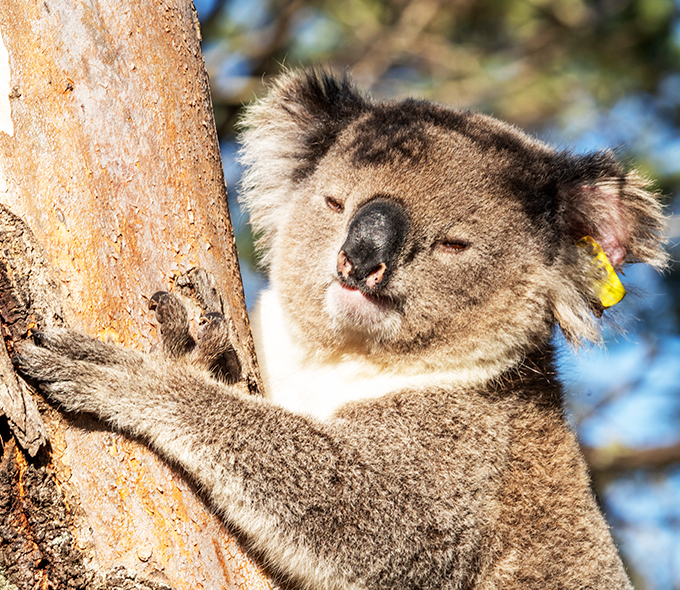These vital statewide programs aim to measure koala distribution, abundance, survival, and genetics and identify key influences affecting New South Wales's koala populations.
Each koala program involves collaboration and capacity-building to promote effective program delivery, including with partners such as NSW National Parks and Wildlife Service, Taronga Conservation Society Australia, Department of Primary Industries, non-government organisations, CSIRO, and universities.
The programs address vital knowledge gaps to benefit koala conservation management and interventions across New South Wales.
Three statewide koala programs
- The koala baseline program measures koala distribution and relative abundance at up to 800 sites.
- The koala priority population monitoring program uses acoustic-based monitoring to measure population trends at 20 priority koala populations.
- The koala sentinel monitoring program is a multi-year monitoring program assessing koala populations for disease, genetic diversity, and ecology at 6 key populations.
All programs rely on using up-to-date koala survey methods, including drones and acoustic recorders, and will look at other vital health and genetic measures to help assess koala populations in New South Wales.

The koala sentinel program is heading to Port Macquarie
Koalas in the Lake Innes Nature Reserve and Limeburners Creek National Park, adjacent to Port Macquarie, will be studied as part of the koala sentinel program; from 13 to 26 September 2024. During fieldwork individual koalas will be captured and released back into their home range. Taronga Conservation Society Australia will undertake health assessments and fit tracking devices to help us collect data on koala density, movement, disease, health, and genetics.
Approximately 50 koalas will be sampled, with some animals fitted with GPS tracking devices and all with ear tags. These devices will help us track koalas and their movements.
Together, this wealth of data will provide a comprehensive assessment of koala health at these 2 key populations on the Mid North Coast.
If you find an injured koala with a purple ear tag or GPS collar, please contact the Koala Conservation Hospital on (02) 6584 1522.
If you find a dropped GPS collar, please contact the Koala Science Team at koala.sentinel@environment.nsw.gov.au.



